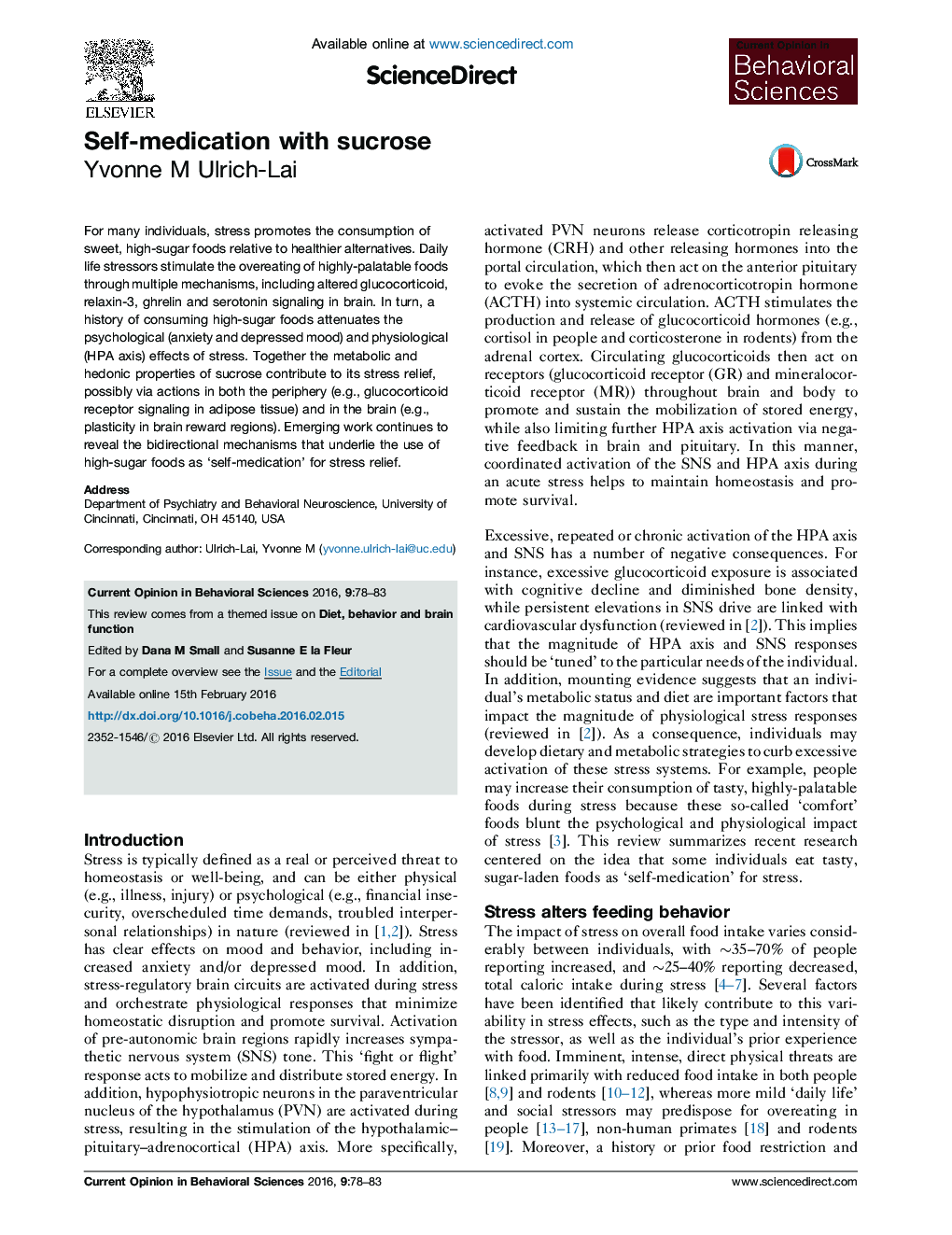| کد مقاله | کد نشریه | سال انتشار | مقاله انگلیسی | نسخه تمام متن |
|---|---|---|---|---|
| 6260599 | 1613081 | 2016 | 6 صفحه PDF | دانلود رایگان |
- For many individuals, stress promotes the consumption of sweet, high-sugar foods.
- Mediators of stress-eating include altered glucocorticoid and serotonin signaling.
- Sweet foods can also reduce the psychological and physiological impact of stress.
- Stress responses are blunted by both the metabolic and hedonic properties of sugar.
- This suggests that some people overeat high-sugar foods to relieve stress.
For many individuals, stress promotes the consumption of sweet, high-sugar foods relative to healthier alternatives. Daily life stressors stimulate the overeating of highly-palatable foods through multiple mechanisms, including altered glucocorticoid, relaxin-3, ghrelin and serotonin signaling in brain. In turn, a history of consuming high-sugar foods attenuates the psychological (anxiety and depressed mood) and physiological (HPA axis) effects of stress. Together the metabolic and hedonic properties of sucrose contribute to its stress relief, possibly via actions in both the periphery (e.g., glucocorticoid receptor signaling in adipose tissue) and in the brain (e.g., plasticity in brain reward regions). Emerging work continues to reveal the bidirectional mechanisms that underlie the use of high-sugar foods as 'self-medication' for stress relief.
Journal: Current Opinion in Behavioral Sciences - Volume 9, June 2016, Pages 78-83
